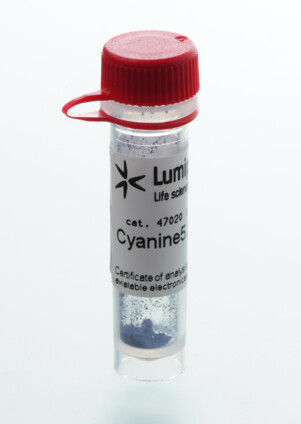DDTT Sulfurizing Reagent
| Cat. # | Quantity | Price | Lead time | Buy this product |
|---|---|---|---|---|
| 3179-1g | 1 g |
–
|
in stock | |
| 3179-5g | 5 g |
$245
|
in stock | |
| 3179-25g | 25 g |
$1150
|
in stock | |
| 3179-50g | 50 g |
$1800
|
in stock | |
| 3179-100g | 100 g |
please inquire
|
in stock |

DDTT is a sulfurizing reagent used to prepare phosphorothioate linkages, which increase the stability and nuclease resistance of nucleic acids, especially of RNA. It is suitable for automated synthesizers employing standard phosphoramidites for a large-scale synthesis of oligonucleotides.
DDTT demonstrates faster kinetics and higher stability in solution, compared to other sulfurizing reagents such as tetraethylthiuram disulfide (TETD) and Beaucage reagent, respectively. DDTT is commonly applied as a 0.05 M or 0.1 M solution in pyridine/acetonitrile and has a lifetime of up to 6 months.
Usage
Coupling: Sulfurization step must come before capping step. The optimum sulfurizing time for DDTT Sulfurizing Reagent, 0.05 M solution in pyridine/acetonitrile: 1 min for DNA or 6 min for RNA.
Deprotection: standard conditions.
Customers also purchased with this product
General properties
| Appearance: | lemon yellow crystals |
| Molecular weight: | 205.33 |
| CAS number: | 1192027-04-5 |
| Molecular formula: | C5H7N3S3 |
| Quality control: | NMR 1H and HPLC-MS (95+%) |
| Storage conditions: | 24 months after receival at -20°C in the dark. Transportation: at room temperature for up to 3 weeks. Desiccate. |
| MSDS: | Download |
| Product specifications |
Oligo synthesis details
| Diluent: | acetonitrile |
| Coupling conditions: | standard coupling, identical to normal nucleobases |
| Deprotection conditions: | identical to protected nucleobases |

























 $
$ 
